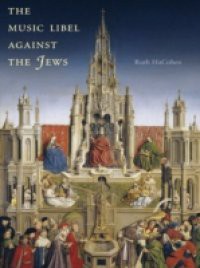This deeply imaginative and wide-ranging book shows how, since the first centuries of the Christian era, gentiles have associated Jews with noise. Ruth HaCohen focuses her study on a musical libel"a variation on the Passion story that recurs in various forms and cultures in which an innocent Christian boy is killed by a Jew in order to silence his harmonious musicality. In paying close attention to how and where this libel surfaces, HaCohen covers a wide swath of western cultural history, showing how entrenched aesthetic-theological assumptions have persistently defined European culture and its internal moral and political orientations.Ruth HaCohen combines in her comprehensive analysis the perspectives of musicology, literary criticism, philosophy, psychology, and anthropology, tracing the tensions between Jewish noise" and idealized Christian harmony and their artistic manifestations from the high Middle Ages through Nazi Germany and beyond. She concludes her book with a passionate and moving argument for humanizing contemporary soundspaces.

